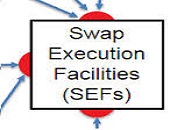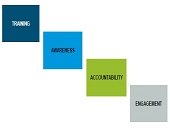Model Risk 2. Look Beyond the Numbers
What does the near-disaster on London’s Millennium Bridge have to teach us about model risk? “The bridge, inaugurated with great fanfare by the Queen in 2000, filled with people and began to sway so strongly it had to be immediately shut down,” said Ravi Chari, Manager, Americas Risk Practice at the SAS Institute. “When the bridge was modelled during development, the developers did pose the question ‘what is the probability of 10,000 people walking in unison on the bridge?’ And the answer was ‘practically zero’—but that’s exactly what happened on Day One!” Chari was the second of two speakers on […]
Model Risk 1. After the Crisis
The potential sources of error in constructing a model “is the key point in determining how to handle model risk,” said Suresh Gopalakrishnan, Principal, Business Information Management, at Capgemini Financial Services. He was the first of two speakers on the topic of model risk management (MRM) in the post-financial crisis regulatory regime, and was speaking at a webinar organized by the Global Association of Risk Professionals on April 24, 2014. Model risk is very wide-ranging. “What about inadequacies in models?” he asked. “Do they cover black swan events? What about aggregate risk? Is model risk in fact part of operational […]
OTC Market 2. A New Paradigm
“How will errors be handled? That’s the biggest area of discussion with SEFs,” said Bis Chatterjee, Global Head of E-Trading and New Business Development, Credit Markets, at Citigroup Global. SEF refers to a Swap Execution Facility. He was the second of two speakers at a GARP-sponsored webinar, about changes to the over-the-counter (OTC) credit default swaps (CDS) market, held on April 15, 2014. “The market had less time than it would have liked to review various rules of the new guideline,” Chatterjee said, referring to the flurry of market response to the new regulations brought in by the US Commodities Futures […]
OTC Market 1. “It was a busy 15 months…”
Over the past fifteen months, “the biggest paradigm shift that we’ve seen in the last twenty years” has occurred, said Nathan Jenner, Chief Operating Officer at Bloomberg Electronic Trading. He was the first of two speakers at a GARP-sponsored webinar, held on April 15, 2014, about changes to the over-the-counter (OTC) market. Jenner put the changes in context: the new legislation driving the changes arose from the 2009 G20 summit in Pittsburgh that occurred on the heels of the 2008 financial crisis. There were three areas the signatory nations wanted to focus on, he said: “reducing systemic risk, improving transparency, […]
Risk Volunteers: Two Profiles
While attending the Toronto chapter of the Global Association of Risk Professionals meetings, we at TextMedic notice a few dedicated volunteers doing everything from handing out name badges to introducing guest speakers. Of course, that’s just the tip of the iceberg—these folks also do a lot of unseen labour such as holding organizational meetings and composing e-mail broadcasts and twisting arms of reticent (and busy) subject matter experts. Thanks to the local chapter, TextMedic has reported in the past on live events about things like pension plan risk, a low volatility equity strategy, and risk data aggregation and reporting. Since National […]
A Successful Operational Risk Program 2. Purpose
“The purpose of the framework is to provide business value,” said Philippa Girling, Commercial Business Chief Risk Officer at Capital One and author of Operational Risk Management: A Complete Guide to a Successful Operational Risk Framework. She was the second of two presenters at a GARP-sponsored webinar on April 8, 2014 that attracted about 2,000 registrants. “Good governance drives good behaviour,” said Girling, noting that the standards of Basel II have now become the de facto standard. Operational risk is “about anything that can go wrong” that’s not market or credit risk. “People make mistakes, systems fail, policies fail” plus […]
A Successful Operational Risk Program 1. Framework
“A clear strategic direction of your company should help formulate clear business objectives, understood by all stakeholders, including employees,” said Brenda Boultwood, SVP, Industry Solutions at MetricStream. An operational risk may be seen as something, together with credit or market risks, which impedes “achieving those business objectives” and includes IT risk, HR risk, and reputation risk. MetricStream is a provider of Governance, Risk, Compliance (GRC) management software and consulting. Boultwood was the first of two presenters at a GARP-sponsored webinar on April 8, 2014 that attracted about 2,000 registrants. Operational risk has evolved from conceptual to strategic, and is now […]
Volcker Rule Implementation 2. Proprietary Trading
The provisions of the Volcker Rule mean that banks are “turning their attention to difficult decisions that must be made,” said Anna Pinedo, Partner at Morrison & Foerster and the second of two speakers during a GARP webinar on April 1, 2014. The Volcker Rule defines proprietary trading as a bank “engaging as principal for” its own “trading account” in a “purchase or sale of one or more financial instruments,” including derivatives, noted Pinedo. Pinedo reviewed the financial instruments that must be assessed for compliance with the new rule. “A lot of our clients itemized and inventoried products to determine […]
Volcker Rule Implementation 1. Assess Yourself
“The Volcker Rule is a negative rule, namely, you are guilty until you prove yourself innocent,” said Robert Lendino, Associate General Counsel at BB&T, and the first of two speakers during a webinar hosted by GARP on April 1, 2014. “And the proof must be furnished by the bank’s compliance group.” The Volcker Rule, drafted in the aftermath of the 2008 financial crisis and approved December 10, 2013, prohibits banking entities from engaging in proprietary trading, and from having ownership in, or acting as sponsors to, certain commodity pools, hedge funds, and private equity funds. [Note: for readability the remainder […]
Fixing Broken Windows 4. Reducing Exposure To Investigations
“Staff training on policies and procedures is critical,” said Luke Cadigan, “to reduce exposure to insider trading investigations.” Cadigan, a partner in the Government Enforcement Group at law firm K&L Gates, was the final speaker in a four-part webinar on “Fixing Broken Windows” organized by GARP on March 11, 2014. Cadigan emphasized the message of the past three speakers, namely, that the Securities and Exchange Commission has become much more focussed on catching financial wrongdoing—from the lowest levels up. Investigations take time and effort and can be costly, thus, firms “want to convince the SEC staff there’s nothing there they […]










